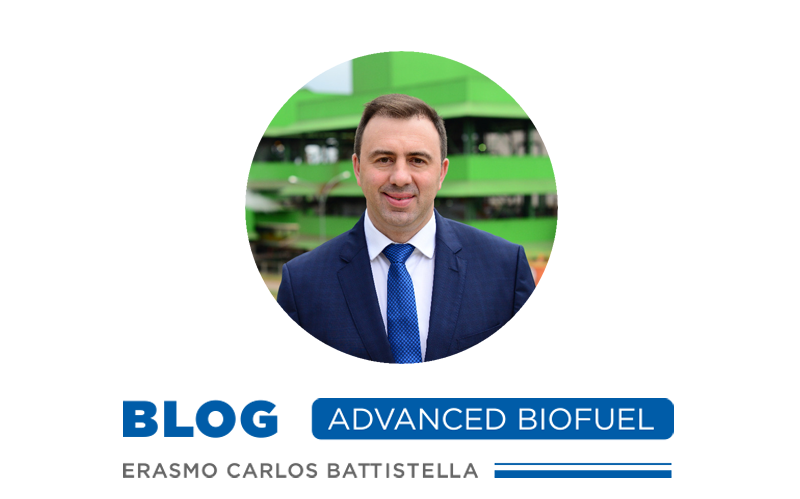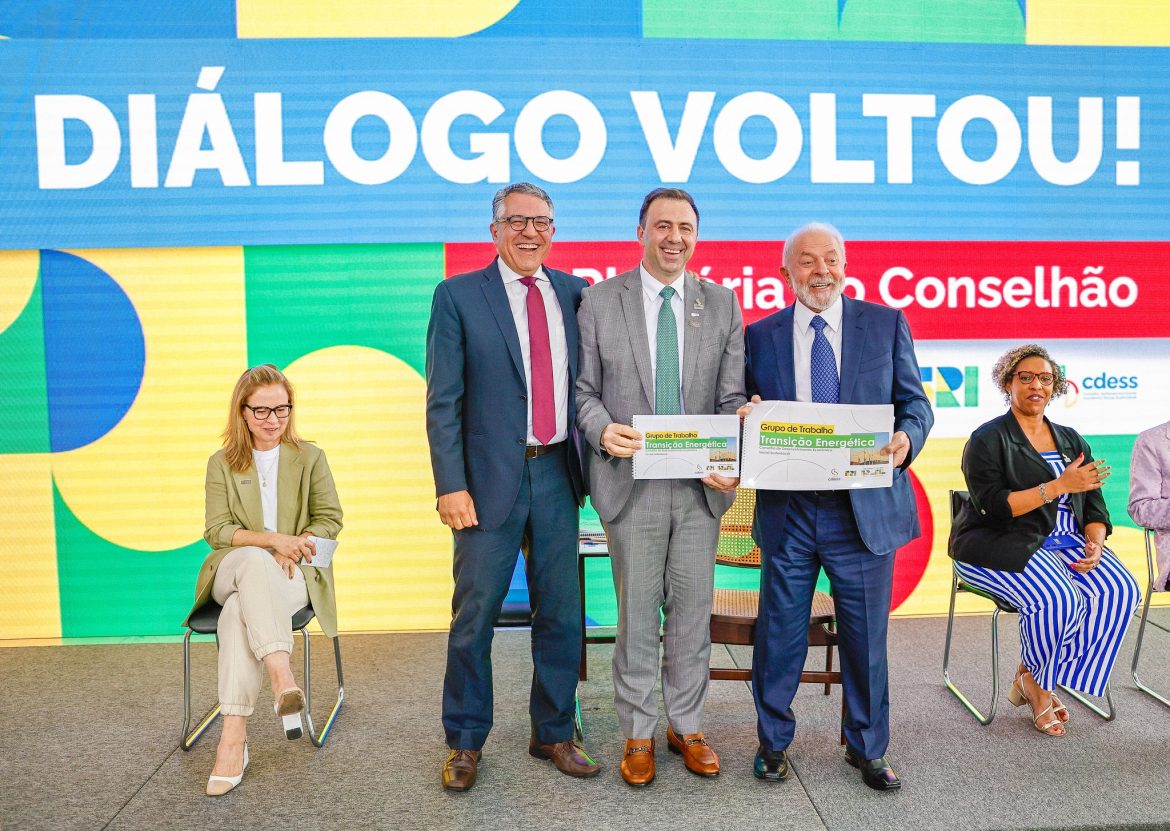The Working Group (GT) Energy Transition of the Council for Sustainable Economic and Social Development presented its results and proposals to President Luis Inácio Lula da Silva, on Tuesday (12/12), at Palácio do Planalto, in Brasília. I represented the 40 counselors who participated in this GT and presented the summary of recommendations resulting from the discussions and studies carried out in 20 meetings.
The following advisors also coordinated this work:
Deyvid Bacelar – In 2020, he took over the General Coordination of the Single Federation of Oil Workers (FUP). Joined Petrobrás in 2006. Represents CUT/CNQ/FUP.
Marcelo Moraes – President of the Forum for the Environment and Sustainability of the Electric Sector – FMASE, Vice-President of the Brazilian Association of Investors in Energy Self-production.
Elbia Gannoum – President of the Brazilian Association of Wind Energy and New Technologies (ABEEólica) and vice-president of the Global Wind Energy Council.
Marcos Augusto Guerra – Businessman and founder of the Energis8 Group in Brazil, has three and a half decades of experience in trade and international relations. He works at the NGO Desengarrafando Mentes.
Rubens Ometto – Chairman of the Board of Directors of the Cosan Group.
The work had the support of the Ministries of Mines and Energy, Environment, Development, Industry, Commerce and Services, Foreign Affairs, Finance and the Civil House.
Energy Transition is the biggest challenge for the decarbonization of the global economy. In Brazil, only 20% of carbon emissions come from the energy sector. Brazil’s per capita carbon emissions associated with the energy sector are equivalent to 36% of the European Union, 26% of China and 15% of the USA.
Our heritage in energy transition is immense in Brazil, with 85% of electricity generated from clean sources; with biofuels, such as ethanol and biodiesel, and with our National Biofuels Policy (RenovaBio), which needs to be strengthened.
With Brazil’s renewable energy potential, we can help the world carry out its energy transition and, at the same time, leverage the country’s social economic development and reindustrialization.
We need to advance public policies with the approval of the Future Fuels Bill and working on the Legal-Institutional Framework to create adequate incentives for the decarbonization of the energy sector in Brazil, to take advantage of the opportunities generated by the energy transition, unlock investments and to promote the country’s reintegration into the advanced chains of the global economy and promote a fair and inclusive energy transition.
Our expectation is to advance the regulatory frameworks for low-carbon hydrogen production, to define the carbon market, the offshore wind model, and the definition of a Sustainable Mobility Program to accompany the PL Combustíveis do Futuro based on a benchmark international conference on sustainable mobility strategies.
We need geopolitical initiatives to create international agreements with the Middle East and Asia, which allow us to export our clean energy production. And thus become the largest producer of clean energy in the world!
I would like to thank Francisco Gomes Neto, CEO of Embraer, and Marcelo Araújo, Corporate Executive Director of Grupo Ultra, President of the Board of Directors of the Brazilian Downstream Association / Instituto Brasileiro de Petróleo e Gás, for their participation in this work.
At the end of the event, President Lula thanked all groups for their suggestions and asked Minister Alexandre Padilha to study the economic feasibility of all projects for their implementation.

